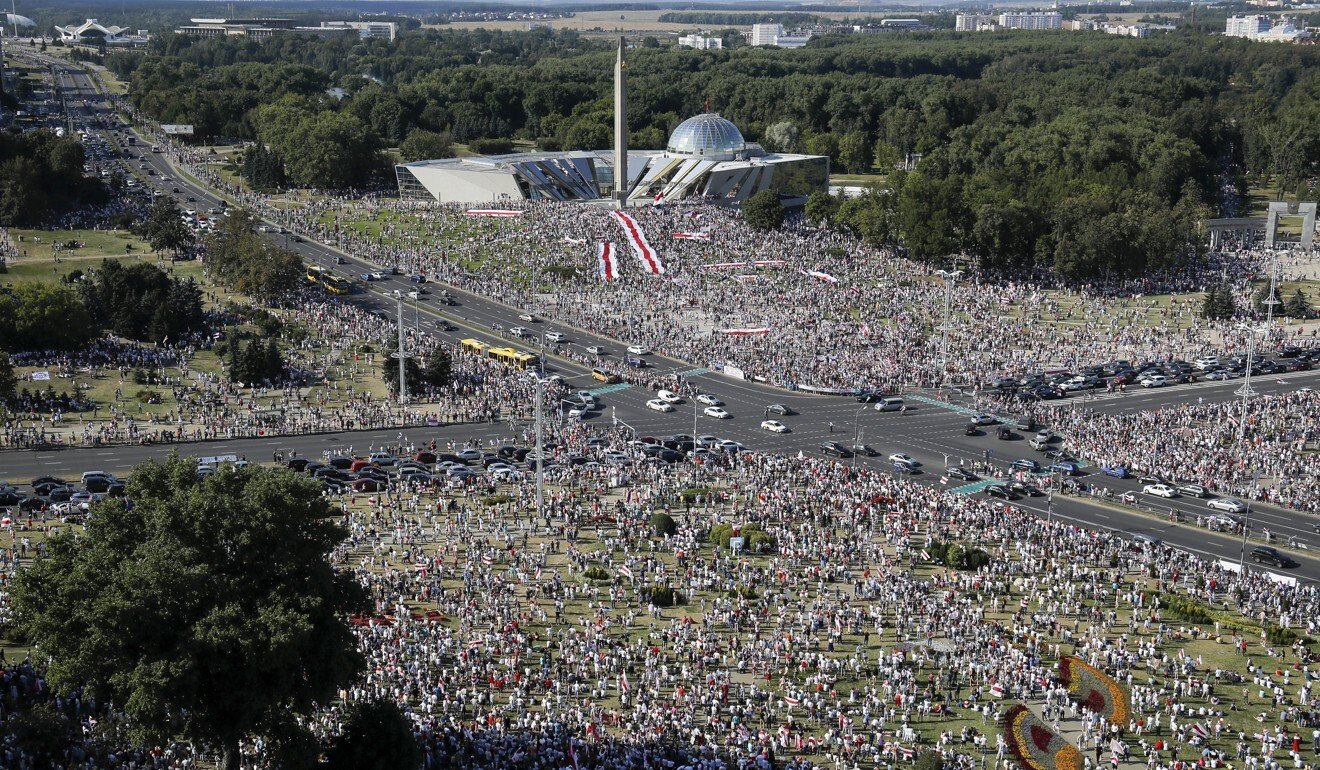Tuesday, 25 July 2023 — Indian Punchline
by M. K. BHADRAKUMAR
 Russian President Vladimir Putin (R) met Belarus President Alexander Lukashenko, St. Petersburg, July 23, 2023
Russian President Vladimir Putin (R) met Belarus President Alexander Lukashenko, St. Petersburg, July 23, 2023
The problem with the war in Ukraine is that it has been all smoke and mirrors. The Russian objectives of “demilitarisation” and “de-Nazification” of Ukraine wore a surreal look. The western narrative that the war is between Russia and Ukraine, where central issue is the Westphalian principle of national sovereignty, wore thin progressively leaving a void.
 Opposition protests in Minsk, Belarus, Aug 16, 2020
Opposition protests in Minsk, Belarus, Aug 16, 2020 Review of Anne Applebaum, Iron Curtain: The Crushing of Eastern Europe 1944-1956, USA: Doubleday, 2012.
Review of Anne Applebaum, Iron Curtain: The Crushing of Eastern Europe 1944-1956, USA: Doubleday, 2012.